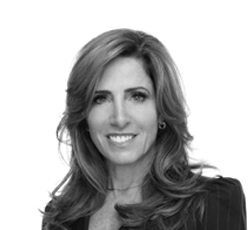How AppsFlyer’s Customer Success team has generated over $100 million in expansion revenue
Ziv Peled
|
Chief Customer Officer
of
AppsFlyer


Ziv Peled


Episode Summary
Today on Churn.fm, we have Ziv Peled, Chief Customer Officer at AppsFlyer
In today's episode, we discussed how Ziv built AppsFlyer’s customer success team from scratch, how he set the key metrics, and how the team evolved to generate over $100 million in expansion revenue in the last 20 months for the company.
Ziv also shared the three main things he looked for when hiring a new customer success manager at the start, why Annual Recurring Revenue churn is the most critical metric for a Customer Success team, and his future plans to prevent "customer champion churn".
As usual, I'm excited to hear what you think of this episode, and if you have any feedback, I would love to hear from you. You can email me directly on Andrew@churn.fm. Don't forget to follow us on Twitter.
Ziv Peled
Recommends
The importance of starting customer relationships right, how CS reduces cost of customer acquisition, why CS and Product should be BFFs3 Customer Churn Prediction Strategy for Your CSM TeamMentioned Resources
Transcription
Andrew Michael
Hey Ziv, welcome to the show.
Ziv Peled
Thank you for having me.
Andrew Michael
It's a pleasure. It's great to have you today for the listeners as if as the chief customer officer at AppsFlyer, Apps Flyer is the global leader in mobile attribution and marketing analytics recently announced they received the massive 210 million dollar series D investment zyv has experienced the rapid growth of appsflyer over the last six and a half years. We started out as a senior customer success manager. So my first question for us is as the chief customer officer at appsflyer What do you accountable for? And where do you focus your time?
Ziv Peled
Thank you. That's a great question. So our main goal is customer success. managers in opsware are doing anything that is related to customers from pre sales until customer good for be the churn. And we emphasize on two main things. One is delivering value. And the second one is building Long, long term relationships.
Andrew Michael
Okay, and talk me through the pre sales concept a little bit Customer Success starts working with a customer before the sales team starts working with him.
Ziv Peled
No. So we when we started very early on, we believed that customer success should be one role, and that when we started, we believe that customers should only know two main people in our organization, the sales manager and the sales director and the customer success. Manager and of course, when we started also the deals were with smaller customers but when we grew and we went to more enterprise customers so we today we have strategic Customer Success managers and solution architects that works with customers we prospect earlier a supporting the sales manager, but then after the DD is one then of course they onboard the customers and they work with the customers for three to six more months and only then they end over so I think that the main goals here wore one to for the customer to know only to make people in Oxford a second one to avoid and overs
Andrew Michael
yeah and how you're avoiding end of is
Ziv Peled
short. So again like when when the solution architect with a strategic CSM, start to work with the prospects it's very early on the understand the maybe special requirements of customer, most of our customers are using a generic solution. But some specific customers may have some very specific needs. And then it's much much easier for those solution architects to start developing relationships and understand the requirements very early on. And then, of course, on board these customers to the best, best successful onboarding ever.
Andrew Michael
Yeah. Okay, that makes sense. And then just going back as well, a little bit. So he said, Nick, you've been now with apps five for six and a half years. I think just before the call. You mentioned to me that you were higher number seven, and the first from the customer success team, is that correct? growth. So maybe you want to explain to us a little bit about the progression and how things have changed up in customer success at appsflyer. So maybe you can start off like what was it like in those first six to 12 months coming into customer success? And starting to set up, what was the focus? What were you working on? And what did the team look like?
Ziv Peled
So it was very unique. But we were we started this to customer success managers, and we did both support and customer success. But in we again, without even understanding, in the first two years, we didn't even hire a sales team. And we had a great inbound demand for our solution. So we were actually inbound sales managers, and we would just take leads and convert them via and then follow up calls. They were, it was very natural. So customers knew that they need this solution. There were two or three players. They spoke to us. They had a very genuine demo. We listened. I think that one of the major points for our success really early days is we really Listen to our customers very, very early on. And I think the magic happened after we converted the customer to start using us. And then the same person we immediately worked with, as the CEO there CSM knew them from the early days. And then I think that because of our space is that some of those companies grew up very fast and we grew up with them because they also get the business model the pricing, model year worked for growth. And then of course, we grew we don't customers,
Andrew Michael
you grew with him. So it sounds like one that you are very busy. Early days, obviously, handling sort of support success and then inbound sales as well. It's interesting sort of that you say that really works is having that single person single contact, starting mine like a customer success, but then doing inbound sales as a result and then having that continuation with the customer. What was in the progression. Like so starting at two of you, then like, what was the next, like, sort of hurdle that you needed to come and you realize, okay, we need more people. We need help. We need specialization of focus. Where did you go from there?
Ziv Peled
Yeah. So two months in my CEO comes to me, and he ended over the team and asked me to start hiring guys. I asked how many people to hire, and you said that just hire. And in the beginning, we hired mainly in Israel. And we started to hire people with different, of course speaking different languages. And then we started our first April coffees in Bangkok and our first US office in San Francisco. And it again, it was also very magical, so I was still a customer. Again, I think that hiring the right people. First 1015 people in the team were very, very special. Again, I think it's things that you can only understand now. We didn't hire people. It's really understand the customer side, the other side, we hired people that are only super passionate, a little bit technical. And I think that what that in addition to what I mentioned before about listening to the customer, I think that really, really helped that in addition to my CEO asking me to not approve Iran 60% of the leads, in order not to get too much noise into the company, we were a very small company, then first year, we grew from seven to 30. I think that was a super, super important for our growth, but also for our focus.
Andrew Michael
And so you went from 7030 in that first year, and you said 15 of those were in customer success. Did I get that right or was that a longer horizon
Ziv Peled
you know, 15, maybe a little bit longer. So the numbers of customer success again, today is Maybe are to understand. So we are now a team of 148 Customer Success managers in 13 offices, in addition to 50 support engineers in nine offices. So, we're a company of 930 people. We are to one within eight people in client services, including knowledge base, analysts support and customer success.
Andrew Michael
And that all fits within your team. Is that correct? Correct. Okay, so then let's just carry on going along rest for the tree then. So it's been a year maybe a little bit longer. 15 people like what are they doing in these early days in customer success? What is their focus? Does anyone have any specialization at this point yet or is still very generic sort of customer success? And everybody doing bit of everything?
Ziv Peled
No, no speciality. Everyone are doing inbound sales to customer success. Everyone comes in the morning to the they triage leads. They take ownership of leads, they start waiting to engage with them, of course, most leads does an answer, then you have the percentage that answer you and you go to demos, you convert them. And you start to work with those customers. And then again, it's it was very organic that we grew. These customers, some of these customers just grow by usage. And some of those some of those customers grew a little bit later when we added more and more value into the product.
Andrew Michael
Yeah, and then at this point, you didn't have a sales team. So pretty much all the inbound sales leads were being handled by customer success. Is that correct?
Ziv Peled
Correct. The, the deals that were done by the deals that were enterprise were done by the CEO, VP of biz dev that manage the managers, the partnerships. But not directly generating sales. It was again, was very early startup days, everyone are doing everything. And if you need to sell to a very big enterprise, then the CEO will do it. Of course.
Andrew Michael
Yeah. Okay. Makes sense. And then so like going on then the next step there, from there, you're around 15 people, where did you scale to next? Like, what was the what size was the company at? And did you face sort of any hurdles along this growth trajectory from like the 15 that you were to the now 200 over 200 in the customer team?
Ziv Peled
Yeah. So again, we pretty much grew exponentially, both company, number of customers number of customer success managers. And in the very early years, we invested the evilly on cloud services from two to 20 from 20 to 5052. They want 100 And now, we are one foot 48. And the plan is to be around 200 210 Customer Success managers by the end of this year. And also support should be around 7075 still still growing massively, we, one of our main goals is to serve all customers. And so we do, of course, every tears, we have tier one customers and we have lower tiers, but we want to serve everyone. And we have different techniques today. We have a customer engagement team that is handling more of the long tail of customers, but even there, there's a very important emphasis on understanding the customers that needs more investment that we can of course, grow them later.
Andrew Michael
Yeah. And through this journey, then you've done like, obviously what are some of the main things that you're looking for in a candidate when you for customer success at the different phases, let's say like somebody you're looking for in the first year versus somebody you're looking for today. What are the strengths that you're looking for in these candidates?
Ziv Peled
Yeah, that's a great question. Actually, in my presentations I touch what are the three main things that I look for in a customer success manager. So six years ago, I would look for someone that is very passionate, a passionate about everything someone is all in, and also 10 50% technical abilities to understand what is what is like to integrate an SDK, how can they help developers with those integrations? Today? I'm looking first and foremost for people that are really great in building and maintaining relationships. I think that the one of the most important from the fundamentals for customer success is relationships. And we can speak about what I speak about it a lot later. Second thing I'm still looking for people that are super passionate It's about helping customers. And the customer is both the company that you work for, and the champion that you work for. And I'm looking for people that really every day they want to edit, they want to understand the KPI of their customer, they want to understand the motivational future of their champions, and they want to help them. And the third one today, I'm not looking for people that are super technical. I'm looking for people that are strategical in their mindset that they understand the place of appsflyer, the marketing stack of our customers, and they also see the future and where upstart will be in 1224 36 months, and they are able to articulate that to customers. So customers, of course, in a term from Salesforce customer for life, I want all my can we can have them They're interesting. And then
Andrew Michael
are these these candidates? Are you looking for like a specific industry experience? Or somebody who's worked in software before? or similar? I think it was drift Julie Hogan episode that we looked into it when they actually looking for references and sources from outside of their industry. So, as you mentioned, like somebody who's a really good connector, I think in their case, they're looking for service. And they were looking to the hotel industry, for example, trying to see if they can learn things from different industries to bring back to service their customers better. Is this something that you've looked at appsflyer something when you look at sort of the diversity of the candidates and where they're coming from?
Ziv Peled
Yeah, so in the earlier days, of course, we hired everyone from any industry and, again, was successful, super successful. I can give even an example of someone Israeli but came back from China, and he worked in China in the printing industry industry hired him to be the first leader of CES in Israel by With the China market, and it was a huge success. Today, of course, we are hiring people that are more around marketing. Maybe they've been an advertiser, maybe they've worked in a publisher, maybe they've worked in an agency, maybe not in the first week of advertising, but maybe the second ring with mobile experience, no mobile experience. Yeah, we interview everyone. And one of the things that I really like to do it, like 25% of my time for hiring, I will do opportunistic interviews, just meet people, in any level, individual contributor level, mid level, even, of course, executive level, and just to make starts relationships with people that might work for me six months, maybe maybe a year. Yeah, but definitely, definitely I can say that today. We are hiring people that are closer to the industry.
Andrew Michael
That's wrenching. Okay. And then let's Bring it back a little bit now, the context of the show and the channel retention. How closely Are you looking at churn and retention as a customer team? And what are some of the focus areas for you when it comes to it?
Ziv Peled
So we look at lots of metrics is and one of the things that they said a lot before 2018, is it? I don't care about KPIs, and I don't, I didn't, I didn't set any goal for the team until 2018. I think that it was much, much more important to emphasize and focus on the onboarding of the team members and the onboarding of the customers and massive growth. In 2018, I started to look at a little bit metrics is that of course I measured before, but it wasn't the goal. And of course, we looked at churn. We looked at onboarding time, we looked at time to value we looked at many, many things. And then some people, you know, pushed me to look at retention or churn as a main goal. And I didn't I didn't believe that that should be the metric or the KPI and I continued look looking for more things and then I saw that one of the most important things that we are already doing back then in 2018 is that we are, we are of course, we managed the main relationship with the customer, we know them very, very good, we know what they need and we are the main component to grow them. So I came up with the upsell indication. And we started measuring that with no goal since May 2018. And in the beginning of 2019, I said the KPI and immediately I also added another brother KPI to that is the feature adoption indication. So for us Customer Success managers that goes to a customer now to record a quarterly business review. And they speak to them and they show them three new features. And one of the features really interesting and the customer is speaking about that feature and is really interested about that. So the customer success manager that when they go back to the office, then they would go to settings for Sunday will open up some indication if it was a premium feature or a feature adoption indication if it was a non premium feature. And today, the goal is to open for indications every month. And as I said, we are measuring the opposite indication since the since May 2018. We drove over 1400, closed one upsell and expansions that it generated over $100 million.
Andrew Michael
Wow, that's amazing.
Ziv Peled
But but but but if you think about that, the main valuer is actually The I call it a valuable engagement. So in order to get to around 3500, valuable engagements, so those are the number of texts that we open them in today. We had to go and speak with so many customers for 10s of thousands of times and in the end, we got to do 3500 valuable engagement and I think that's the main goal. The second thing that I must emphasize here is that we just feature adoption. The indication for non premium features, we are now around 46% conversion rate it means that again, the CSM must understand that they need to find the right value for the customer. They cannot just go and pitching things and then open future adoptions for customers. But if a good CSM today is opening to feature adoption indications, most likely that one will be adopted and for stickiness for retention. For the sake of churn for the sake of fighting chair, this is the best thing that you can do for customers focused on upsell and feature adoption implications. Make sure that you have enough product features to to push as much value. And then not only that, you will get less shared, you will also grow your
Andrew Michael
Yeah, I agree with Alexa with the sentiment with what you're saying now as well, in the sense that churn is an upward metric, and what you really been focusing on is the inputs. So if we think about like, net Mr. Retention with your efforts and focus on expansion, I'm pretty sure you probably net negative churn. And then the same thing is well, like with inputs, I think what you tend to feature adoption is one thing I think in in different companies and different tools. There might be like the ability to transition them into different use cases or to get different team members in, but really having that core focus on what are the many inputs that are driving your attention, I think is an excellent way. And I think also, it's one of the things that troubled me a bit when I hear like organization say that customer success owns retention, because it's a metric that's influenced by so many different departments and so many different aspects. But what you've done, what it sounds like that fries really taken two main things that you have control over as a team as a customer success team, and got the team to focus behind those and then drive those numbers, which ultimately, you know, is going to impact Turner attention.
Ziv Peled
Yeah, absolutely. And maybe something that I can add here that I speak to many, many companies and I see companies that you know, they push, the goal for customer success is the growth but they also they give them the quota. And if you if you think about the book of business, have a customer success manager in average managing, let's say 30 accounts, and then when they go and meet one of those, one of those customers and they try to upsell them, of course for premium feature because they want to generate more revenue. You, then that customer says that they don't have budget for the next six months. So of course, the immediate thing is that that customer is getting a much lower priority for that CSM. So the CSM is not focused on their entire portfolio for us and the metric. And the goal that we set is that that customer success manager doesn't care. The Deaf customer doesn't have budgets, they will go and push them to use one of our 25 non non premium features, which if you think about that, that customer six months, 12 months later, they can you know, raise $50 million. And then I can make I can promise you that they will remember that CSM that was pushing them on value all the time and actually, that's raising the trusted advisor in them and then of course developed a relationship
Andrew Michael
Yeah, I think this is one of those sort of challenges with customer success a lot of the times is, a lot of people want to see what's the ROI, and how do we measure it? And how can we ensure that it's sort of paying for itself. But when you say like, some of these things have longer term horizons, and it might not even be that this company raises the 50 million, maybe this person leaves the company, joins another company and remembers appsflyer for it. So
Ziv Peled
this is absolutely one of our growth arms, people that are joining new companies, and they are our best advocates and they want top seller and they want same service, same platform. So again, it's not only by service, it's not only by customer success, you have to have a great product, you have a great with a great investment in product and innovation. But again, I can take some of the credit. Yeah.
Andrew Michael
And there was any points in like the last six and a half years where the company was a little bit concerned with churn and retention. If yes, like what was some of the conversations that are happening within the company. What are some of the organizational changes that were happening to try and combat it?
Ziv Peled
Yeah, again, I think because of many aspects, so we are a mission critical product, so our customers must use our product every day. I think that's, that's a crucial point for why Customer Success is so important in App Store and why it's so successful. And and I think that that aspect with many different other aspects and our great success is leading that we are we don't have a lot of churn. So our churn throughout the years was very low, below 5% error.
Andrew Michael
Yeah, okay. So it was never any sort of a thing that raise alarms internally. They said, okay, we need to sort of start focusing on this now and see what we can do. No, it wasn't and I
Ziv Peled
think also it's important. So when cut when a company grows fast and massively and also a service of many different different segments of customers, I think that it's it's also very important to look at mostly erasure and not looking at the local journal number of customers, where it's maybe important in product, but much less important customer success for customer success in our churn. For me, that's the main metric. And it's also very important. And, you know, I have a, an ops team of eight people, and I always emphasize to them is that I don't want to see children by itself as a metric, I must see it as a voluntary and non voluntary and involuntary, I want to see the reason. And I want to, again, it's not that I'm not looking at what is related to pricing or product or any other thing, but I want to exactly know that and then, you know, there's specific things that are related to pricing, and we need to focus on that and see if you can resolve that specific For product, and then there's things that we need to understand. Did we enter that? Good enough? Was it certain bed service? Didn't we generate? Didn't we build the right relationship? etc?
Andrew Michael
Yeah, make sense. And then so you really kind of segmented to understand what's within your control to change, you're aware, perhaps you you made a mistake and then really ignoring the rest of the noise, so to say, which is out of your control, like involuntary churn and aspect that you can't really influence as a customer success team. So. So then as well, like you mentioned, another thing I think is interesting in the context of channel retention and something we haven't really touched on much in the podcast, but is this concept of being sort of mission critical? You mentioned that appsflyer is mission critical tool that your customers really needs to be looking at it every day, or else sort of like there's definitely something wrong with that customer. I think this is something that's often overlooked as well when you look at the top of two That you're building and this type of product. And really, when you can build a product that becomes a part of the daily workflow part of like the mission critical aspect part of the infrastructure, it becomes really hard for customers to pull out and to remove. In your experience at appsflyer. Like With this in mind, what has been sort of like that point, or one of the big areas of churn that was within your control to change was nothing to do with sort of like the aspects of the mission critical of the company going under or things like that.
Ziv Peled
Yeah. So again, like the mission critical, I think that it's mostly making the work of the system as they said, much more important, but also it makes our lives much easier. So think about the product that the customer needs to use only once a month, maybe something that is solving something for salaries, and then I think that the work of the system will be much, much harder. But for your question, I think that the Some of the children that we saw, and it was very complex, and it was on us, but it was very complex is, and I'm going to touch it a lot this year in discussions is that when we end in the big customers, when we had relationships with many, many people, and we didn't really fully understood was the decision maker was influencing the decision. And and also, I think that one of the biggest problems in b2b sales is that satisfaction. I don't, I don't think that there's there's a really good solution to understand satisfaction of customers. So there are tools for NPS to see sad, but then you only understand you only understand the status of the customers that answered you don't understand the status of of customers that didn't answer if you work with 20 people wanting to be customer, and only three answered. And they are not the influencers or decision makers, and they actually are your biggest promoters. You actually you won't know you have a problem.
Andrew Michael
Yeah, that makes sense. And what are you doing then to try and sort this out this year? Like, what are some of the things that you're thinking about doing and how you're keeping track of these champions within the companies?
Ziv Peled
Yeah. So our next big thing that we are releasing internally, we are developing currently in Salesforce, a new object that is going to manage everything that is related to the relationship. And when I'm saying relationship, I mean, think about a very big customer of appsflyer. Yo, if you go to the contact object in Salesforce, you'll see around 200 contacts, and it's lots of noise. It's not clean. Some of those people are not in the company, some of those people are not relevant. So what we are going to build in that new object instance force that we call relationship, we're actually going to set the most important I call it significant relationships of the account. And always owning that. And also for the customer managers to say, what is the strength of this relationship from one to five. And I went to they know that person on a personal level, from one to five. And then then from a very big view that I can go to an accountant, I've seen that we have for relationships, to have the CSM two to two champions, one from the team leader to a decision maker and one executive to executive. And I really, again, like it's a new framework, we're just starting it but I believe that a lot of what we're going are a lot of what we're already doing today. And a lot of what we're going to do in the future is going to be
all around those relationships.
Andrew Michael
Yeah, that makes sense again, and available. Unlike a lot of noise, but really having that understanding and knowing who's the decision maker who's driving the changes in organization and making sure that you're able to understand really get close and build relationship with him.
Ziv Peled
When was when was the last time that we touched them? When was the last time that they responded to us? What is their tenure in their in their company? And you know, a lot of information that is, will enable us to know, again, think about the customer success manager, again, having 30 accounts, one to two champions in every account around 60, maybe more significant relationships. What, what is my next engagement? Oh, should I prioritize my next engagement? What should be the next quarterly business review? Who should I invest in next?
Andrew Michael
Who have you not got feedback from? That's a champion.
Ziv Peled
Yeah, no feedback from again, like, tier one customers, most important customers, and how can I get feedback from them, should they do it from the system? Should I do it in app? Should I go and do it by one of the leaders? I'm thinking this year about doing interviews by a third party for the fear of our customers at least once a year.
Andrew Michael
Yeah. To get an unbiased peers? Well,
Ziv Peled
exactly. And by the way, this will also be limited because, you know, some some percentage of those interviews you will going to, you're going to interview someone that you don't know yet, but they are going to leave the company in the next two months. And then that interview that feedback, that satisfaction is going to be the value of it is going to be live with it.
Andrew Michael
Yeah, that makes sense. I think we talked about this a lot in the when the customer champion leads with the average 10 years old, specifically, software companies like being 1824 36 months at the most. You have a lot of this internal champion churn all the time. So what you're saying I think, like the efforts that you're putting in as well, like they have diminishing returns sec overtime is all just due to the fact that these people are going to leave where they're at.
So they have like this one question away. And by
Ziv Peled
that point, headway on that point, the worst thing there is that the new champion that you're getting, in some cases, they are the advocate of the charge of the of your competitive competitor. Yeah,
Andrew Michael
exactly. It's a sales opportunity as well when the champion leaves the company. So it's not only that they left the company, but they're also going somewhere else they were happy with your product solution before? Absolutely. How can you sell into them? So one question I asked everyone that joins the show and interested to hear your thoughts on this as well as let's imagine a hypothetical scenario now that you've decided to join a new company, and you're on with this company and chena retention is not doing great at all. The CEO has asked you and is tasked you to try and turn things around, and he's looking to try and get some results in the first 90 days. What could be some of your key activities that you would do within that time to try and turn around and get some results for the company.
Ziv Peled
Yeah, I think the imminent thing that you must do in that, in those 90 days is, first understand your product. What are the jobs to be done by your users, the users that are using your product? Go and understand what are the basic desired outcomes that the majority of your customers wants to achieve? Go and make sure if they achieve that, if they achieve that, why are what are the reasons for for sharing after customers? Of course, got the desired outcomes? And then I think it's a you know, from all that information, I can understand maybe the next steps but the the main thing you need to understand is a jobs to be done. Who is using it? Are they getting the desired outcome? And then what's next
Andrew Michael
you'd spend most of the time really just trying to understand how you can influence what your customers are looking to try to achieve with your product. And then from that, that would drive some of the key actions that you would start working with your success team or with the company to implement and make sure you're adding value and helping your customers.
Ziv Peled
Yeah, and you know, it could be it can be also many other reasons. I think that it depends also, if it's 30%, churn or 10% sure that CEO wants to fix but you know, it's, it's 30%. And I will definitely go to this route and understand the if if we're fulfilling the desired outcomes of those customers. If it's 10%, then you need to go and look for other things, our sales, maximizing the deals, maybe the chairman is just because customers are getting value but in the end of the year, they realize it's too expensive. Yet this this analysis is of the data, but our would go with number one, to understand the desired outcomes of these customers and making sure that they are really getting those desired outcome. When it company under understand the main desired outcome from their product. In most of those customers get that desired outcomes. Most renewals will work even automatic. Yeah,
Andrew Michael
if you're delivering value companies are going to change if their values aligned with the cost, the amount of effort and the amount of money that they pay, you can have a customer for life. So zyv like it's been a pleasure having you on the show today. Really, really appreciate you joining us. Is there any last thoughts? You want to leave the audience with any ways that they can keep up to speed with what you're working at at appsflyer?
Ziv Peled
Yeah, I think what I touched one is that the focus of customer success should be mainly on value in long term relationships. I think that customer success managers must Not be related to anything commercial for them to be the pure trusted advisors. And I think that the maybe, you know, maybe people doesn't, doesn't understand and exist centers that I'm saying for the last couple of months is that says is not not not not easy, I want to say easy but it's it's not so complex because in the end, there's a customer they're looking for value. And it's it's very straightforward. You are buying value, and you're paying. You are you're, you're paying money for that. That's the great transactional and straightforward. Customer Success is super complex, because it's very long term. And every time that I'm engaging with one of my champions, and I want them on a call for one hour, I'm sending them for the most things in life, which is their time in a customer success manager that does a very good job they know how to focus on the right value. And if they're if they're champions, achieve good things in not so good CSM makes waste that one hour of the champion, and then it's going to be very hard for them to get the next hour.
Andrew Michael
Yeah, it's really about focusing on that time there's value delivered. So the amount of time you chewing up for your customers the amount of value you're delivering, and just critical to get the balance right. Now that last, so it's well deserved. Thanks so much. It's been a pleasure having you today and wish you best of luck now in this next hiring spree and growth spurt that you're going to be going through over the next year.
Ziv Peled
Thank you so much. Thanks.
Andrew Michael
And that's a wrap for the show today with me, Andrew, Michael. I really hope you enjoyed it and you able to pull out something valuable for your business to keep up to date with churned olefin and be notified about new episodes. blog posts and more. Subscribe to our mailing list by visiting chern.fm. Also, don't forget to subscribe to our show on iTunes, Google Play or wherever you listen to your podcasts. If you have any feedback, good or bad, I would love to hear from you. And you can provide your blunt direct feedback by sending it to andrew@churn.fm. Lastly, but most importantly, if you enjoyed this episode, please share it and leave a review as it really helps get the word out and grow the community. Thanks again for listening. See you again next week.
Comments


Ziv Peled

A new episode every week
We’ll send you one episode every Wednesday from a subscription economy pro with insights to help you grow.
About
The show

My name is Andrew Michael and I started CHURN.FM, as I was tired of hearing stories about some magical silver bullet that solved churn for company X.
In this podcast, you will hear from founders and subscription economy pros working in product, marketing, customer success, support, and operations roles across different stages of company growth, who are taking a systematic approach to increase retention and engagement within their organizations.


















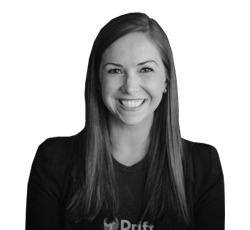

























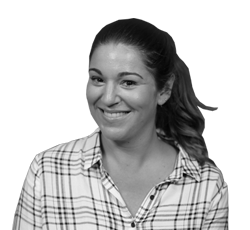


























































.png)





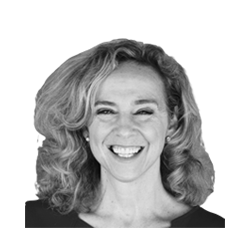







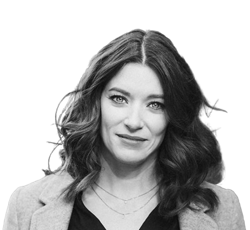
















































.png)






























